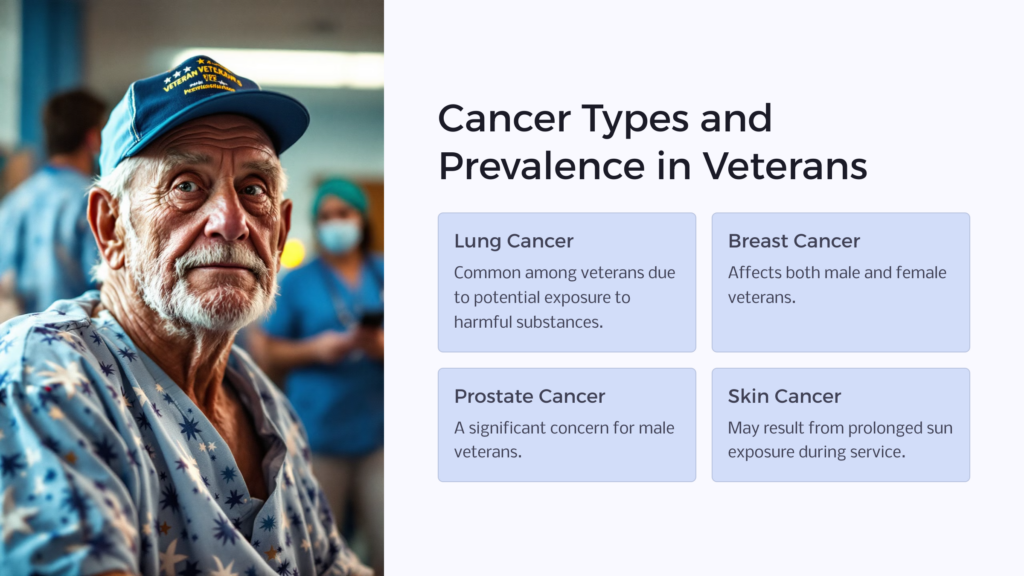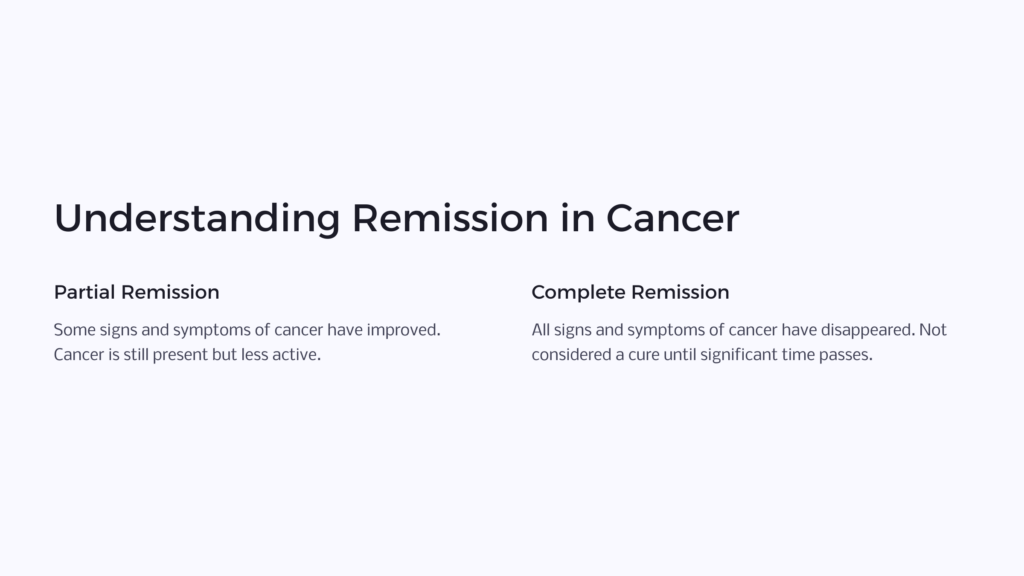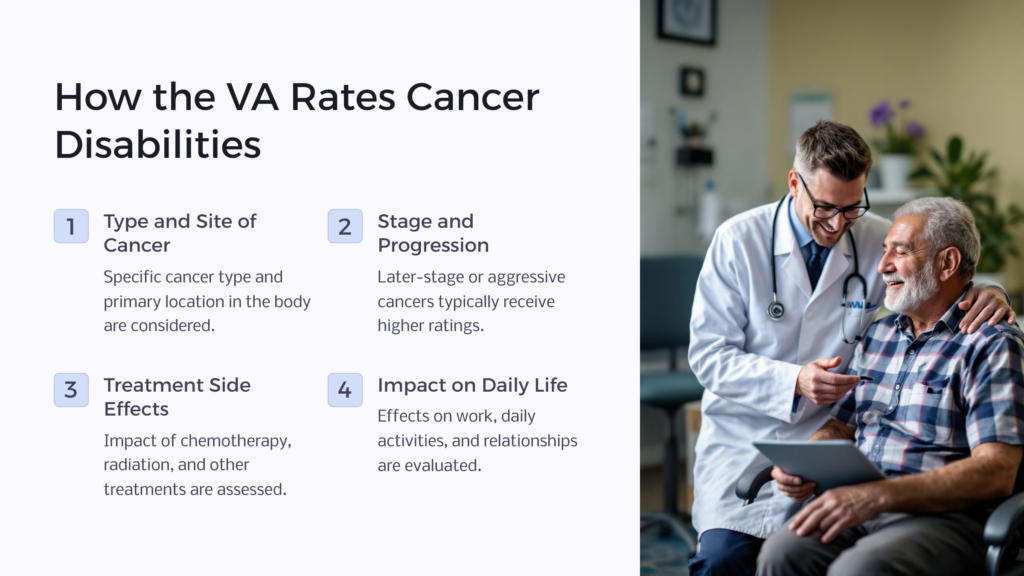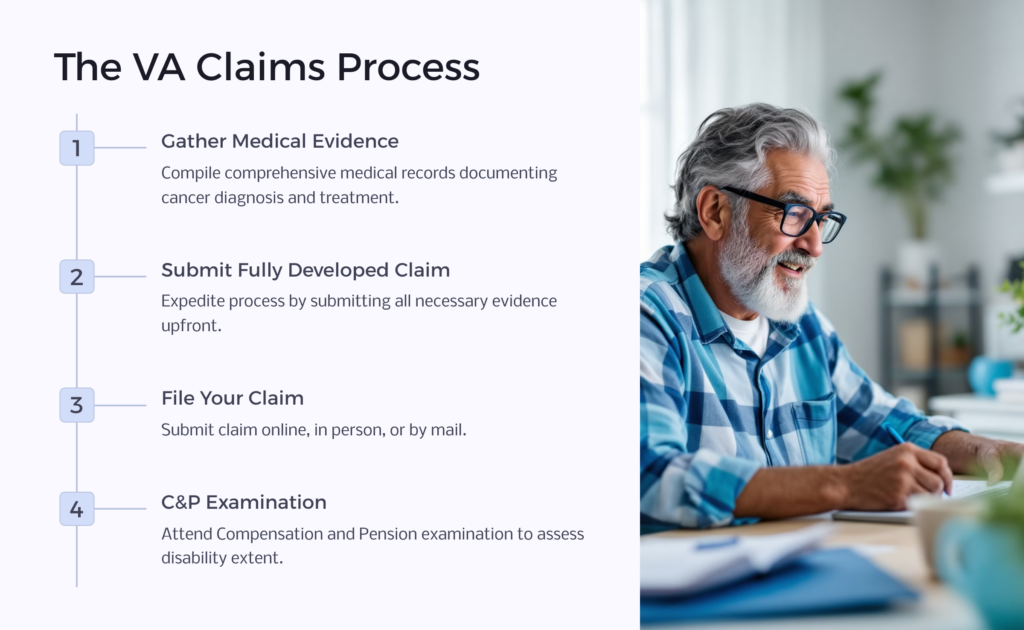Understanding Cancer and Its Impact on Veterans

Cancer is a formidable adversary, and for our nation’s veterans, the battle against this disease can be especially challenging. It’s is a group of diseases characterized by the uncontrolled growth and spread of abnormal cells in the body. It can manifest in various forms, affecting different organs and systems, with each type having its own characteristics and challenges. Veterans, like the general population, can be diagnosed with a wide range of cancers, including but not limited to lung cancer, breast cancer, prostate cancer, and skin cancer.
The prevalence of cancer in veterans is a matter of concern, given potential exposures to carcinogens during their military service. For example, some veterans may have encountered hazardous materials or been exposed to radiation, factors that can increase the risk of developing cancer later in life.
Furthermore, the physical and emotional toll of cancer can be uniquely challenging for veterans who have already faced the demands of military service. These individuals often exhibit remarkable resilience, but they may encounter distinctive healthcare needs and considerations when dealing with cancer.
What Is Remission in Cancer?

Cancer, a diagnosis that brings fear and uncertainty, often follows an intense journey of treatment, hope, and resilience. In this section, we shed light on a term of paramount importance in the world of cancer: remission.
Remission is a term used to describe a state in which the signs and symptoms of cancer have diminished, or in some cases, disappeared completely. It is a momentous milestone in the cancer journey, signifying that the cancer treatment and medical interventions have been effective in controlling the disease.
There are two primary types of remission:
- Partial Remission: In partial remission, some but not all signs and symptoms of cancer have improved. It implies that cancer is still present, but it is not as active or widespread as before.
- Complete Remission: Complete remission is a term used when all signs and symptoms of cancer have disappeared. However, it’s important to note that the term “cure” is typically not used in oncology until a significant amount of time has passed without any cancer recurrence.
Understanding the concept of remission is crucial for veterans dealing with cancer, as it directly impacts their experience with the VA’s disability rating system.
Overview of the VA Disability Rating System
The United States Department of Veterans Affairs (VA) operates a comprehensive disability rating system designed to provide compensation and support to veterans who are suffering from a military service connected disability, including those stemming from cancer. In this section, we’ll provide a foundational understanding of this critical system.
The VA rating system plays a pivotal role in determining the level of financial assistance and healthcare benefits veterans receive. It operates on a scale from 0% to 100%, with ratings given in increments of 10. These ratings represent the degree to which a veteran’s disability impairs their ability to function in daily life.
When veterans apply for VA disability compensation, their medical records, along with their service history, are meticulously reviewed for the VA claim. The VA assesses how these disabilities affect their overall quality of life. For cancer survivors, both the impact of the cancer itself and the cancer treatment are crucial considerations in this process.
Understanding the VA’s disability rating system is the first step in comprehending how it addresses cancer-related disabilities, including those in remission.
How the VA Rates Cancer Disabilities

The process of determining disability ratings for cancer-related conditions by the United States Department of Veterans Affairs (VA) is highly structured, aiming to ensure fair VA disability compensation for veterans who have endured the challenges of cancer. In this section, we’ll explore the intricate details of how the VA assesses and rates these disabilities.
Cancer disabilities are evaluated based on several key factors:
- Type and Site of Cancer: The VA takes into account the specific type of cancer and its primary site in the body. Different cancers can have varying effects on an individual’s ability to function, leading to diverse disability ratings.
- Stage and Progression: The stage at which cancer is diagnosed and its progression over time are pivotal considerations. Later-stage cancers or those with aggressive growth are typically rated higher, reflecting their greater impact on daily life.
- Treatment Side Effects: Many cancer treatments, such as chemotherapy and radiation therapy, can lead to debilitating side effects. These side effects are also assessed for their influence on a veteran’s functional capacity.
- Impact on Daily Life: The core objective of the VA disability rating system is to gauge how the cancer and its treatment affect a veteran’s daily life, taking both physical health and mental health into consideration. This includes assessing the ability to work, engage in daily activities, and maintain relationships.
It’s crucial for veterans to provide comprehensive medical evidence and records and detailed information about their cancer diagnosis and treatment when applying for disability benefits. The more detailed the information, the more accurate the VA disability rating will be, ensuring that veterans receive the appropriate level of special monthly compensation and support for their unique circumstances.
How The Claims Process Helps You

Navigating the complex landscape of VA disability claims can be a daunting task, especially when dealing with cancer-related disabilities. In this section, we will guide veterans through the step-by-step process of applying for disability benefits and offer valuable insights to ensure a smooth journey.
- Gather All Relevant Medical Evidence: The foundation of a successful claim is a comprehensive set of medical records documenting the cancer diagnosis, treatment, and the resulting disabilities. Veterans should collaborate with their healthcare providers to compile all relevant documents.
- Submit a Fully Developed Claim (FDC): Veterans can expedite the claims process by submitting a Fully Developed Claim (FDC). This entails submitting all necessary evidence upfront, which can lead to quicker decisions.
- File Your Claim: Veterans can file a claim through the VA’s online portal, in person at a local VA office, or by mail. Ensuring that the VA claim is complete and accurate is crucial, as any missing information can lead to delays.
- The Compensation and Pension (C&P) Examination: In many cases, the VA will schedule a Compensation and Pension (C&P) examination to assess the extent of the disability. This examination is a critical part of the process and helps determine the VA rating.
- Receive the Decision: After reviewing the evidence and the results of the C&P examination, the VA will issue a decision, granting or denying disability benefits. If the claim is approved, veterans will receive their disability rating and the associated compensation.
- Appealing a Denied Claim: If the claim is denied, veterans have the right to appeal the decision. It’s essential to review the denial letter carefully, identify the reasons for denial, and work with a Veterans Service Officer (VSO) or an attorney to prepare a strong appeal.
Navigating the VA disability claims process can be challenging, but with careful attention to detail and persistence, veterans can secure the benefits they deserve, especially when dealing with cancer-related disabilities.
How Can Benefits.com Help Me?
Benefits.com is an organization dedicated to helping veterans get the benefits they deserve. Here are some of the ways we can help you:
- Expert Guidance: Benefits.com can provide expert guidance throughout the claims process, ensuring that veterans have a clear understanding of the steps involved and the documentation required.
- Claims Preparation: We assist veterans in compiling comprehensive and accurate claims of disability and service connection, reducing the chances of denials due to missing information.
- Appeal Assistance: In the event of a denied claim, we can help veterans prepare strong appeals, increasing the likelihood of a successful outcome.
- Reducing Stress: Support alleviates the stress and administrative burden veterans may face when dealing with the VA, allowing veterans to focus on their health and well-being.
Understanding what benefits you qualify for and how to get them can be complicated. Having someone like Benefits.com help guide you through the process can help you ensure you get everything right and get the best VA benefit plan! Check us out today to start on your benefits journey.
 Benefits.com Advisors
Benefits.com Advisors
With expertise spanning local, state, and federal benefit programs, our team is dedicated to guiding individuals towards the perfect program tailored to their unique circumstances.
Rise to the top with Peak Benefits!
Join our Peak Benefits Newsletter for the latest news, resources, and offers on all things government benefits.



















